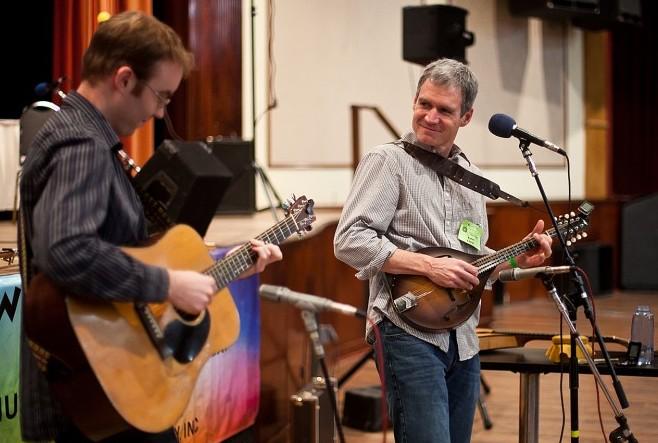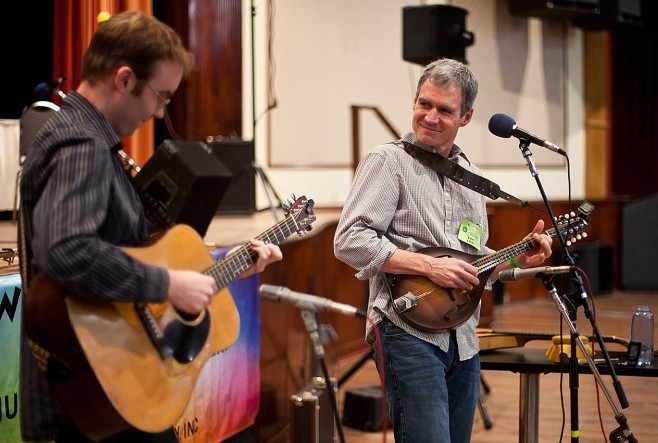NEW YORK—It’s not just southern states like Kentucky that have the rich tradition of folk music. New Yorkers too sung their tales and played many a lively tune on the fiddle in the days before television and radio. Some musicians, such as Dave Ruch, are keeping that tradition alive.
Ruch has dusted off archived songs and picked the tunes from the living memory of the few New Yorkers still steeped in the traditions.
“I love the chase,” said Ruch. While the English, Irish, and Scottish tunes survived into posterity, the German and Dutch songs faded; and barely a trace is left of the songs brought from Africa by the slaves.
Songs on a variety themes once filled the kitchens and the leisure hours of New Yorkers: the low bridges over the Erie Canal, dreams of the fortune to be found out West, tragic accidents, loves lost, loves gained, life in lumber camps, and “sometimes local tales, more often tales they didn’t know the origin of,” said Ruch.
At the Eisteddfod Folk Music festival in Kerhonkson, N.Y., on Nov. 6, Ruch sang a song about a husband and wife arguing over whether they should stay put and tend their New York farm, or venture west where they could live off Buffalo meat and gold. The husband dreams,
I’ve a mind to forsake my plow and my cart
Off to Wisconsin on a journey I'll go
To double my fortunes as other folks do
The sensible wife entreats, “Oh stick to your farming and suffer no loss, for the stone that keeps rolling will gather no moss.” When that does not convince her husband, she appeals to his love for her and their children,
Is surrounded by injuns who murder by night
They'll plunder our cabin, burn it to the ground
While your wife and your children lay murdered around
This threat extinguishes his wanderlust and he continues the northeast farmer’s life.
The journey down the Erie Canal was a common one for traders, and many a song sprouted up about the low bridges, built so low because less material meant less cost. The canal cost a whopping $7 million in those days, without any aid from the federal government.
One song warned: “Oh look out! That Low Bridge, Look Out! That Low Bridge!” The song was actually written for the Vaudeville stage around the 1880s, but it describes the experience of traders on the canal at that time.







